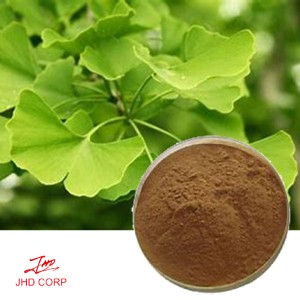Positive Effects of Ginkgo Biloba Extract on the Cardiovascular System in the Middle-Aged and Elderly
Ginkgo Biloba Extract's ability to improve circulation, reduce oxidative stress, and prevent clot formation makes it a valuable natural supplement for supporting heart and vascular health.
Ginkgo biloba, an ancient tree species with a history of use in traditional medicine, has garnered significant attention in modern research for its potential health benefits. Among its various applications, the effects of Ginkgo biloba extract (GBE) on the cardiovascular system in middle-aged and elderly individuals have been particularly noteworthy. This article explores the positive impact of Ginkgo Biloba Extract GBE on cardiovascular health, supported by scientific findings.
Ginkgo biloba extract is rich in bioactive compounds such as flavonoids and terpenoids, which exhibit potent antioxidant and anti-inflammatory properties. These properties are crucial in mitigating oxidative stress and inflammation, both of which are key contributors to cardiovascular diseases (CVDs). As individuals age, the risk of developing CVDs such as atherosclerosis, hypertension, and ischemic heart disease increases due to the cumulative effects of oxidative damage and vascular dysfunction. GBE has shown promise in addressing these underlying mechanisms.
One of the primary benefits of GBE is its ability to improve blood circulation. Studies have demonstrated that GBE enhances endothelial function by promoting the production of nitric oxide, a molecule that relaxes blood vessels and improves their elasticity. This vasodilatory effect can help lower blood pressure and improve overall vascular health. Additionally, improved circulation ensures better oxygen and nutrient delivery to tissues, which is particularly beneficial for aging individuals with compromised cardiovascular efficiency.

GBE also plays a role in reducing platelet aggregation, which can help prevent the formation of blood clots. Excessive clotting is a major risk factor for heart attacks and strokes, especially in older populations. By inhibiting platelet activity, GBE may contribute to a lower risk of thrombotic events.
Moreover, the antioxidant properties of GBE help combat free radicals that contribute to oxidative damage in blood vessels. This protective effect may slow the progression of atherosclerosis, a condition characterized by the buildup of plaque in arterial walls. By reducing oxidative stress, GBE supports healthier arteries and promotes long-term cardiovascular stability.
In addition to its direct effects on cardiovascular health, GBE has been associated with improvements in cognitive function, which is often linked to better blood flow to the brain. Enhanced cerebral circulation may indirectly support overall cardiovascular health by reducing the risk of vascular dementia and other cerebrovascular conditions.
It is important to note that while ginkgo biloba extract flavonoids show significant potential, its use should be approached with caution. Dosage and individual response can vary, and potential interactions with medications such as anticoagulants or antiplatelet drugs must be considered. Consulting a healthcare professional before incorporating GBE into a regimen is essential, particularly for individuals with pre-existing medical conditions or those taking prescription medications.















